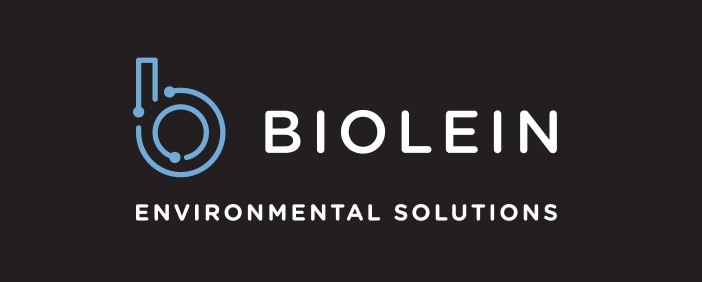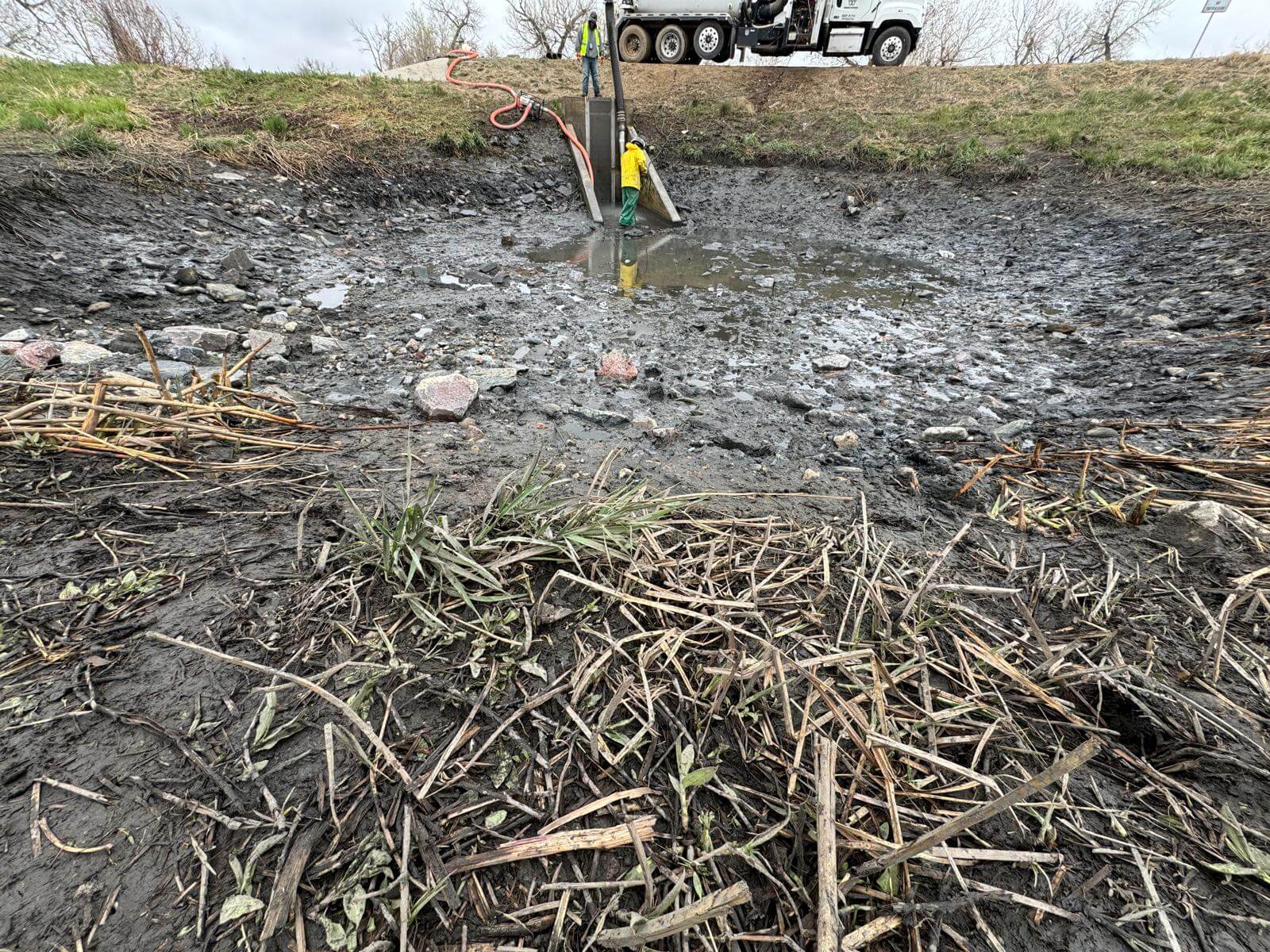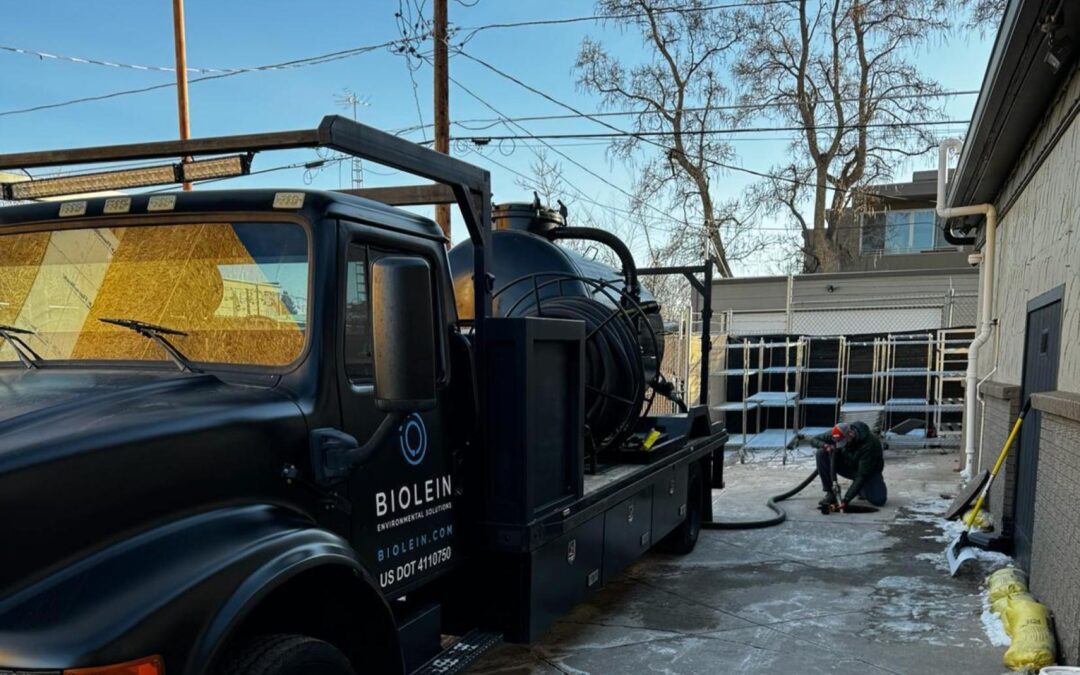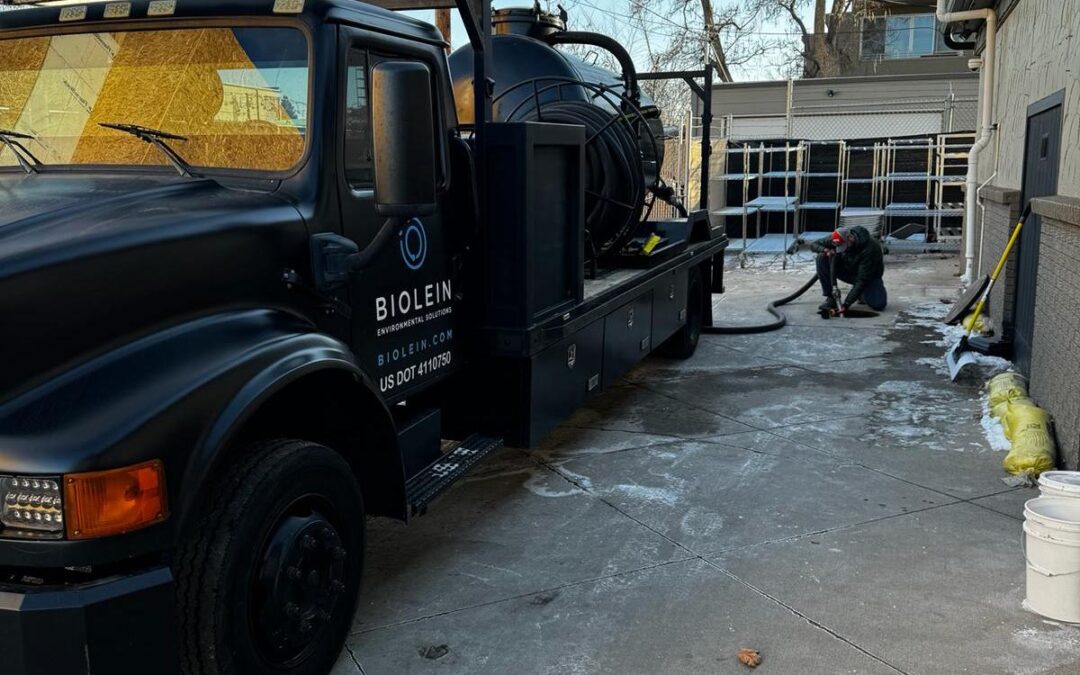If your business or facility has been cited for a grease interceptor, oil-water separator, or sand trap violation, you’re not alone. Many commercial kitchens, auto shops, and industrial facilities receive compliance notices due to neglected interceptor maintenance, improper waste disposal, or failure to meet local environmental regulations.
Ignoring a citation can lead to fines, shutdowns, and costly repairs, but with the right steps and a little professional interceptor maintenance, you can correct the issue, regain compliance, and prevent future violations. Here’s what to do if you’ve been cited for an interceptor issue.
Step 1: Understand the Violation Notice
When you receive a citation, the first step is to review the notice carefully. Regulatory agencies issue citations for a variety of reasons, including:
- Excessive grease, sludge, or sediment buildup in interceptors
- Overflowing or clogged drainage systems
- Improper waste disposal practices
- Lack of routine maintenance or record-keeping
- Failure to comply with local environmental codes
Who Issues These Citations?
- Local health departments
- City or county wastewater authorities
- Environmental protection agencies overseeing stormwater management
Each agency has different compliance deadlines and requirements, so it’s important to respond quickly to avoid further penalties.
Step 2: Schedule an Inspection and Assessment
Before you take corrective action, it’s important to assess the condition of your interceptor. Contact a professional waste management provider like Biolein to inspect your system and provide a report on the following:
- The level of grease, oil, or sediment accumulation
- The condition of your interceptor (corrosion, leaks, or structural issues)
- Whether the violation was due to a lack of maintenance or improper disposal practices
- Recommended steps to resolve the issue and regain compliance
A thorough assessment helps determine whether your interceptor needs cleaning, repairs, or a complete system overhaul.
Step 3: Arrange for Immediate Interceptor Cleaning
A professional interceptor cleaning is the fastest way to correct the issue if your citation was due to excessive buildup or improper waste management.
What a Professional Cleaning Includes:
- Pumping and removal of grease, sludge, and debris
- Thorough hydro-jetting to clear out clogged drain lines
- Inspection of baffles, screens, and flow systems
- Proper disposal of waste according to environmental regulations
Why You Shouldn’t Delay Cleaning:
- Continued operation with a non-compliant interceptor could result in higher fines.
- Severe buildup can lead to drain backups, sewer blockages, or emergency shutdowns.
- Many cities require proof of professional cleaning before lifting a violation.
Regular interceptor maintenance prevents future citations, costly damage, and business disruptions.
Step 4: Submit Proof of Compliance to Authorities
Once your interceptor has been cleaned and serviced, you’ll need to provide documentation to the regulatory agency that issued your citation.
What to Include in Your Compliance Report:
- Service receipts and cleaning records from a licensed provider
- Before-and-after photos of your interceptor
- Confirmation of proper waste disposal
- A maintenance plan outlining how you’ll prevent future violations
In many cases, regulatory agencies require ongoing proof of maintenance to ensure long-term compliance.
Step 5: Establish a Preventative Maintenance Plan
After resolving the citation, it’s essential to prevent future issues by implementing a routine interceptor maintenance program.
How Often Should Interceptors Be Cleaned?
- Grease interceptors (restaurants, food service): Every 30 to 90 days, depending on volume
- Oil-water separators (auto shops, car washes): Every 3 to 6 months
- Sand traps (industrial, commercial properties): At least twice per year
Best Practices for Ongoing Compliance:
- Schedule regular interceptor cleanouts with a licensed provider
- Train staff on proper waste disposal practices (no grease or solids down drains)
- Monitor interceptor levels to prevent overflows
- Keep detailed maintenance records to show compliance
By staying proactive, you can avoid future fines, reduce emergency costs, and extend the life of your interceptor system.
Step 6: Upgrade or Repair Your System If Needed
If your interceptor frequently clogs, backs up, or fails inspections, it may be time for repairs or system upgrades. Some businesses receive citations because their interceptor is:
- Undersized for the amount of waste being processed
- Old or corroded, leading to leaks and structural failures
- Poorly designed, causing inefficient grease or sediment separation
If your system is outdated, consider working with a waste management specialist like Biolein to upgrade to a more effective, compliant interceptor.
What Happens if You Ignore an Interceptor Citation?
Ignoring a citation can result in:
- Increased fines and legal penalties
- Temporary or permanent business closure
- Environmental violations that could impact your operating license
- Damage to your plumbing and sewer lines, leading to costly repairs
Taking immediate action not only protects your business but also ensures you remain compliant with local and federal regulations.
Get Back in Compliance with Expert Help
A citation for interceptor violations doesn’t have to mean disruptions or heavy fines. By taking the right steps — scheduling a professional cleaning, submitting proof of compliance, and implementing a maintenance plan — you can correct the issue and avoid future violations.
If you need immediate interceptor cleaning, compliance assistance, or a long-term maintenance plan, Biolein is here to help. Our team specializes in fast, reliable interceptor services, ensuring that your business stays compliant and your operations run smoothly.
Need to resolve an interceptor violation? Contact Biolein today for expert service and compliance solutions.
Biolein has become a trusted partner for hydrovac excavation, environmental waste management, environmental consultation for hazardous waste, and drainage solutions across Colorado and beyond. We’re not just an environmental services company in Denver — we’re the team you can count on to tackle the tough jobs and keep things running smoothly.





